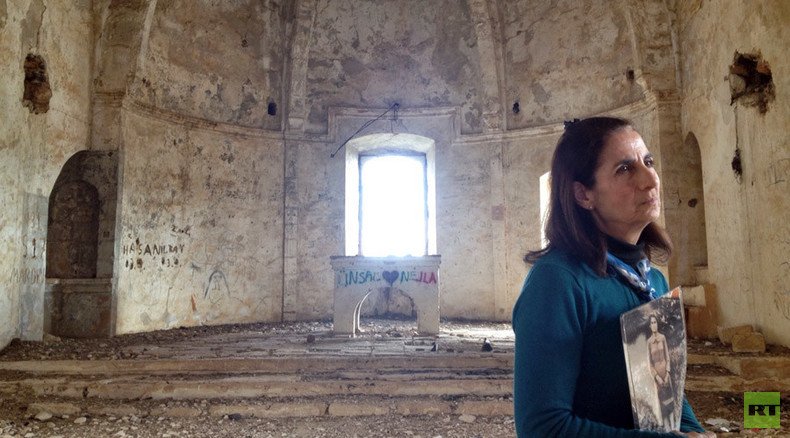Ghosts of Cyprus: Wounds of war still open 40 years after conflict

Over 2,000 people are still mourned by their families in Cyprus, an island divided between Greeks and Turks in 1974. A team of Greek and Turkish volunteers has joined forces to find their bodies, trying to bring reconciliation to the split island.
The sunny Mediterranean island has been divided by a UN buffer zone for over forty years, and Greeks can only return to the places they left due to the Turkish invasion via two check points. Otherwise, they could be caught by the Turkish military and taken to the police and, possibly, later to prison, Greek Cypriot photographer Constantinos Capri, who lives in a bordering village, told RT.
“All the other wounds of war, like women being raped, prisoners being tortured, people losing their limbs, refugees, displaced people – these can heal after conflict, but not when your father does not come home for dinner for ten, twenty, thirty, fifty years,” – Paul-Henri Arni, UN member of the Committee on Missing Persons in Cyprus, said.
READ MORE: UN quietly offers DNA tests to address ‘peacekeeper babies’ & sexual abuse claims
The Committee on Missing Persons in Cyprus (CMP), began excavations on both sides of the island in 2006, setting up a laboratory in the capital city of Nicosia, where Greek and Turkish specialists conduct DNA analyzes on bones found in the area, and pass them on to desperate relatives. So far, nearly 1,000 sites have been excavated, and the remains of about 600 victims have been identified and returned to their families.
Inside the lab of the #CommitteeonMissingPersons, #Cyprus. Watch "Ghosts of Cyprus" online http://t.co/EUrdR2rZs2pic.twitter.com/FHMaAu8J81
— RT_Documentary (@rt_doc) August 12, 2015“Now, after 40 years, we at least feel they are by our side, because we never even knew where they were buried. It was very hard. Now we know they are close. Of course, we won’t see them, but we can pray by their graves, to ease our souls,” a Turkish woman told RT.
Capri and his mother took an RT team to the Turkish side of the island, where they lived forty years ago. They found the sleepy village where they had lived now occupied by Turks, calling their brief visit “weird,”“as if nothing had happened. It’s like in a dream…”
READ MORE: British air force closes Cyprus runway after deadly missiles fall off UK jet
“Constantinos, do you know how many days and nights I spent asking myself one question: why did they cut her head off?” – Irini asked her son at the spot in the yard where the remains of her mother had been found buried some 20 centimeters below ground. She added that the family had “never found the head.”
They also visited an abandoned Greek church that had been constructed of all white marble and boasted an iconostasis reaching the roof, to find that “now there’s nothing but an echo, silence and us.”
ПРИЗРАКИ КИПРА: о чём вспоминают жители греческой и турецкой частей Кипра. Премьера http://t.co/plvXgcHg9ipic.twitter.com/9RaK9guNam
— RTД на русском (@rtd_rus) August 12, 2015Ethnic violence in Cyprus erupted in the 1960s after it gained independence from British rule. At that time, the country entered an unstable political period, with the Greek majority and a significant (18.2 percent) Turkish minority fighting for dominance. Bloody conflicts waged on ethnic grounds led to hundreds of people being killed or disappearing, scores of villages destroyed, and thousands of people displaced.
The violence reached its peak in 1974, when Cyprus was invaded by Turkey after a Greek coup d’état. The military action, which Ankara referred to as a “peace operation,” resulted in the country being split. The self-declared state of Northern Cyprus emerged as a result, which is only recognized by Turkey.
The conflict remains frozen to this date, despite repeated UN efforts to resolve the dispute, and the north of the country has effectively fallen out of international jurisdiction. Some 35,000 Turkish troops remain stationed there. However, there are hopes that reunification talks between Greek and Turkish Cypriot leaders, which resumed in May 2015, may finally bring a resolution to the crisis that has lasted over 40 years.












